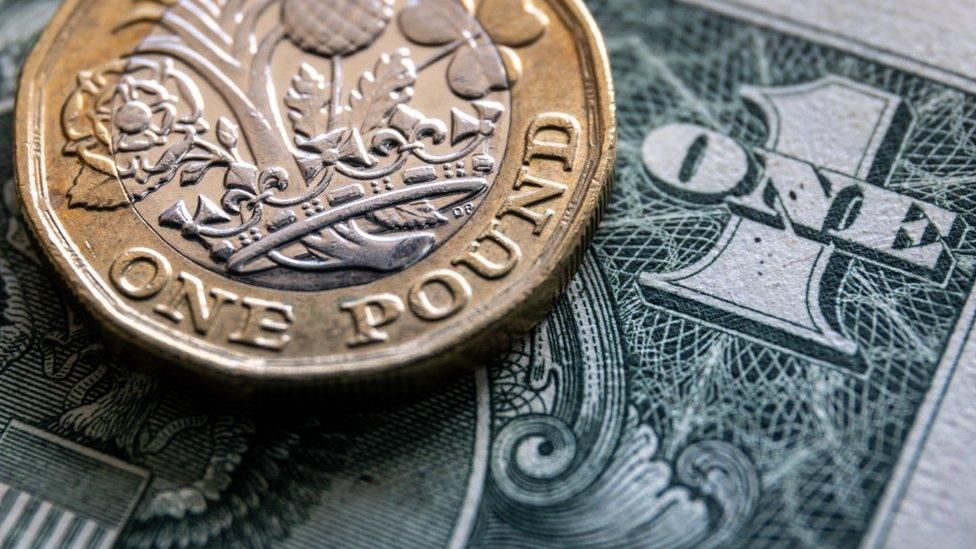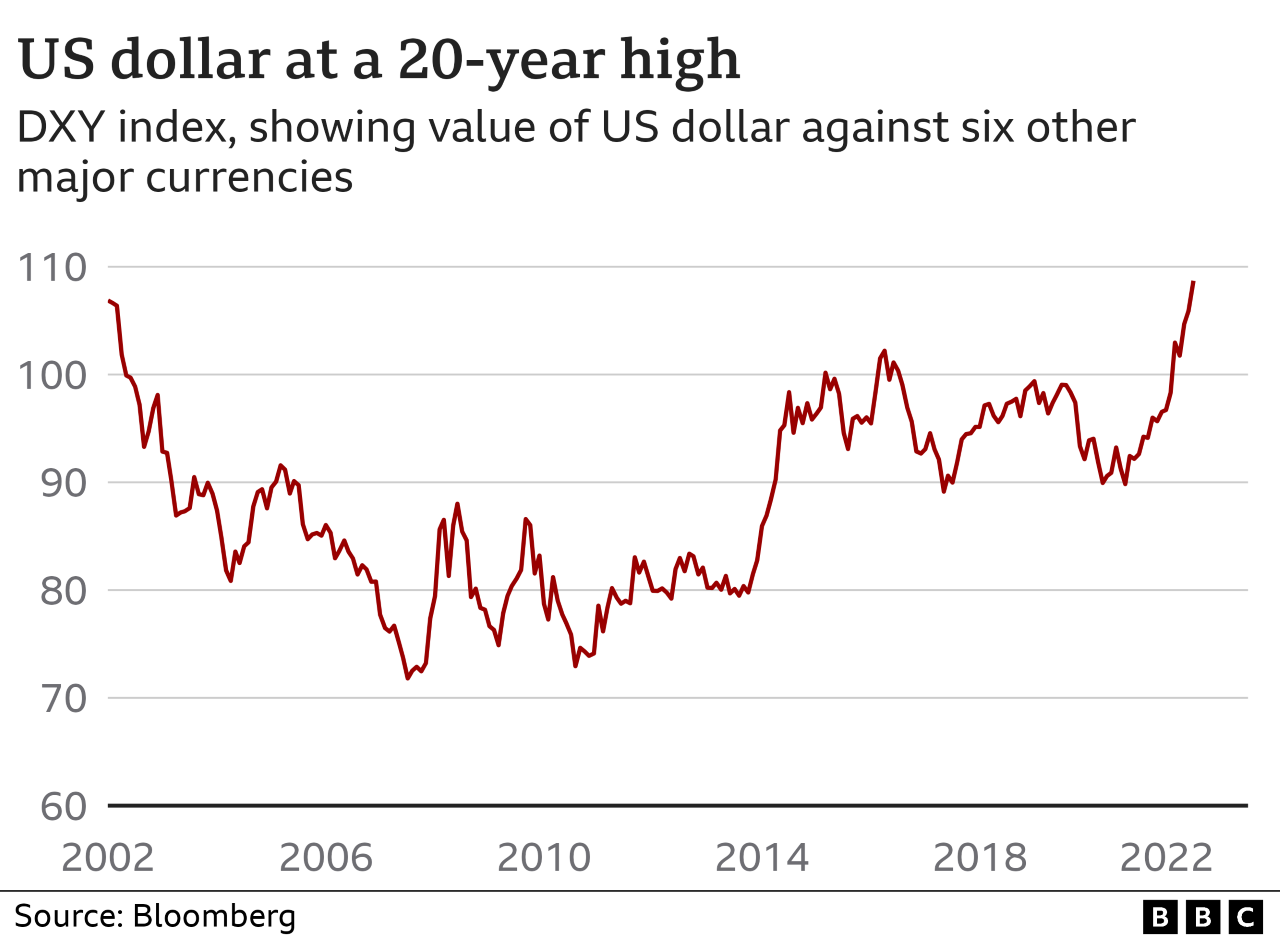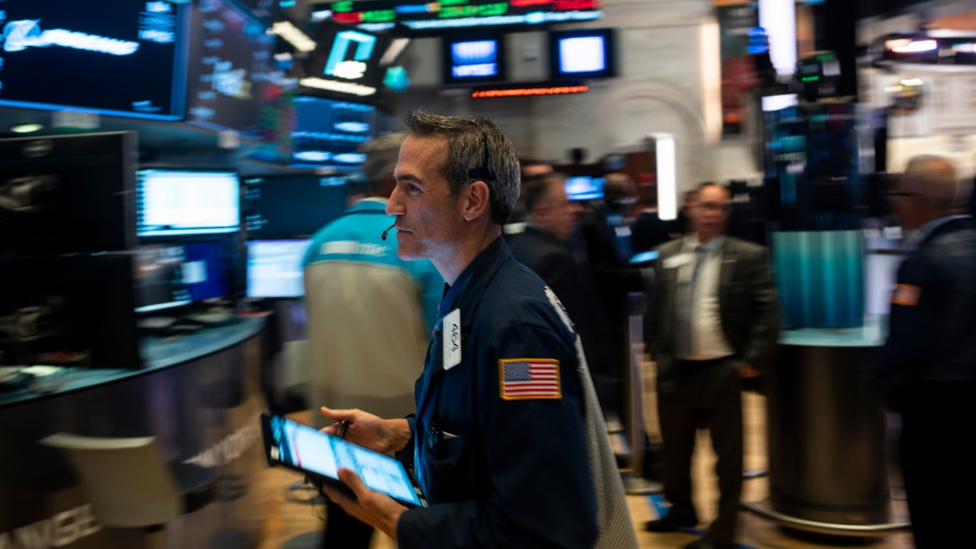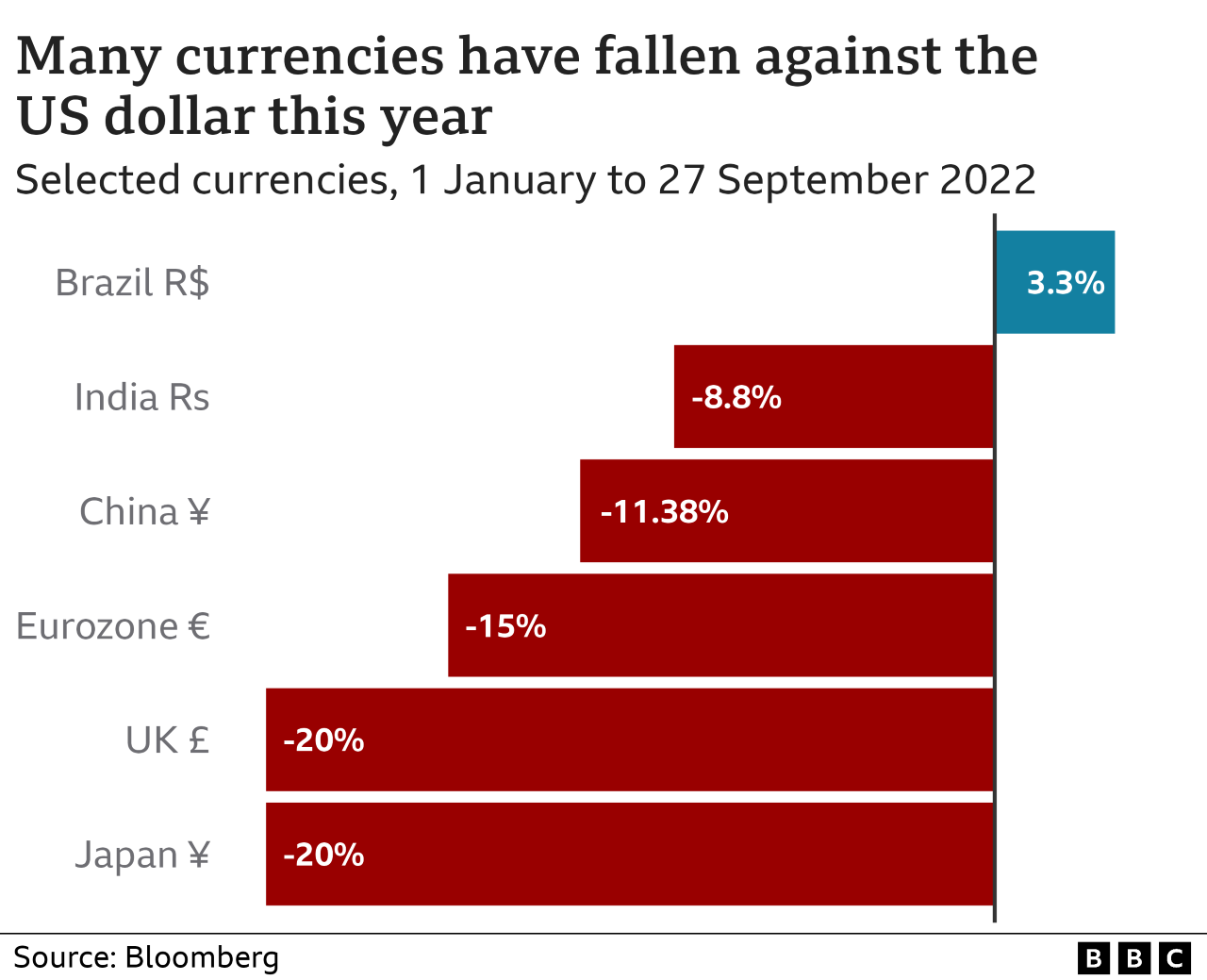Why is the US dollar so strong, and what does it mean?
- Published

The US dollar is the strongest it's been for two decades, compared with other major currencies.
This means it's more expensive to buy dollars, and dollars buy more pounds, euros or yen.
This affects businesses and households across the world.
How strong is the dollar?
The dollar index (DXY) - which measures the US dollar against an average of six other major currencies, including the euro, pound and yen - has risen 15% in 2022.
By this measure, the dollar is at a 20-year high.

Why is the dollar so strong?
The US central bank has increased interest rates several times this year to try and tackle rising prices.
This has pushed up the returns offered by financial products which use dollars such as US government bonds.
Bonds are a way for governments (and companies) to borrow money, which they promise to repay with interest in the future. Government bonds are generally considered very safe.
Investors from across the world have recently been buying billions of dollars of US bonds.
They have to spend dollars to purchase these bonds, and the extra demand has pushed up the dollar's value.
When investors sell other currencies to buy dollars, they drop in value.

There has been a rush to buy US government bonds on Wall Street
Investors also tend to buy dollars when the global economy is under pressure, because the size of the US makes its currency a "safe haven". That also puts the price up.
Many economies in Europe and Asia are struggling as a result of soaring gas prices caused by the conflict in Ukraine.
The US hasn't been hit as hard by rising energy prices. Although its economy has shrunk in the last six months, businesses are still taking on staff, which is seen as a sign of continuing confidence.
Why is the dollar so strong against the pound?
The pound hit a record low against the dollar on 26 September, falling to $1.03. It has since recovered a little.
It has fallen by 20% in value against the US dollar since start of the year.

The pound's biggest slump followed a mini-budget in which the Chancellor Kwasi Kwarteng outlined a £45bn package of tax cuts, as well as energy subsidies for businesses and households.
He also indicated there would be more tax cuts to come.
Many investors sold UK government bonds, and other UK financial assets, because of fears the chancellor's measures would cause government borrowing to surge to unsustainable levels.
This made the pound drop in value.
How does a strong dollar affect countries with weaker currencies?
Like Sterling, the Japanese yen has fallen 20% in value against the dollar, while the euro has fallen by 15%.
Countries with weaker currencies can benefit from a strong dollar because it makes the goods and services they sell to the US cheaper, which boosts exports.

However, it also means goods imported from the States become more expensive.
Since oil is priced in US dollars, petrol now costs more in many countries around the globe.
In Britain, for example, the average price of a litre of petrol has increased from £1.46 to £1.67 since the start of the year - a rise of 15%.
It peaked at £1.91 in July.
Governments and firms in many countries also often borrow money in US dollars rather than their own currencies because it tends to be more stable.
As the dollar increases in value, it becomes more expensive to repay those debts with local currency.
Argentina's government has been hit particularly hard by the stronger dollar.
It has temporarily banned various imported goods, including yachts and whisky to try to protect its financial reserves.

Petrol prices have risen sharply in the UK this year, partly as a result of the strength of the dollar
What are countries doing about the stronger dollar?
Many countries around the world are trying to boost the value of their own currencies by putting up interest rates.
The UK has increased its main rate by 2 percentage points, so far. The Bank of England says that further rises are likely, with many analysts predicting interest rates could rise as high as 6 percent.
The European Central Bank has increased its interest rate by 1.25 percentage points.
Raising interest rates helps to hold down rising prices, but also makes it more expensive for businesses and households to borrow money.
This helps hold down rising prices, but it also means that firms struggle to stay profitable, and may lay off staff. Families may also cut back on spending.
In turn, this can cause countries to slip into recession, meaning the economy shrinks.
Even before the recent drop in the value of the pound, the Bank of England had warned that the UK may already be in recession.